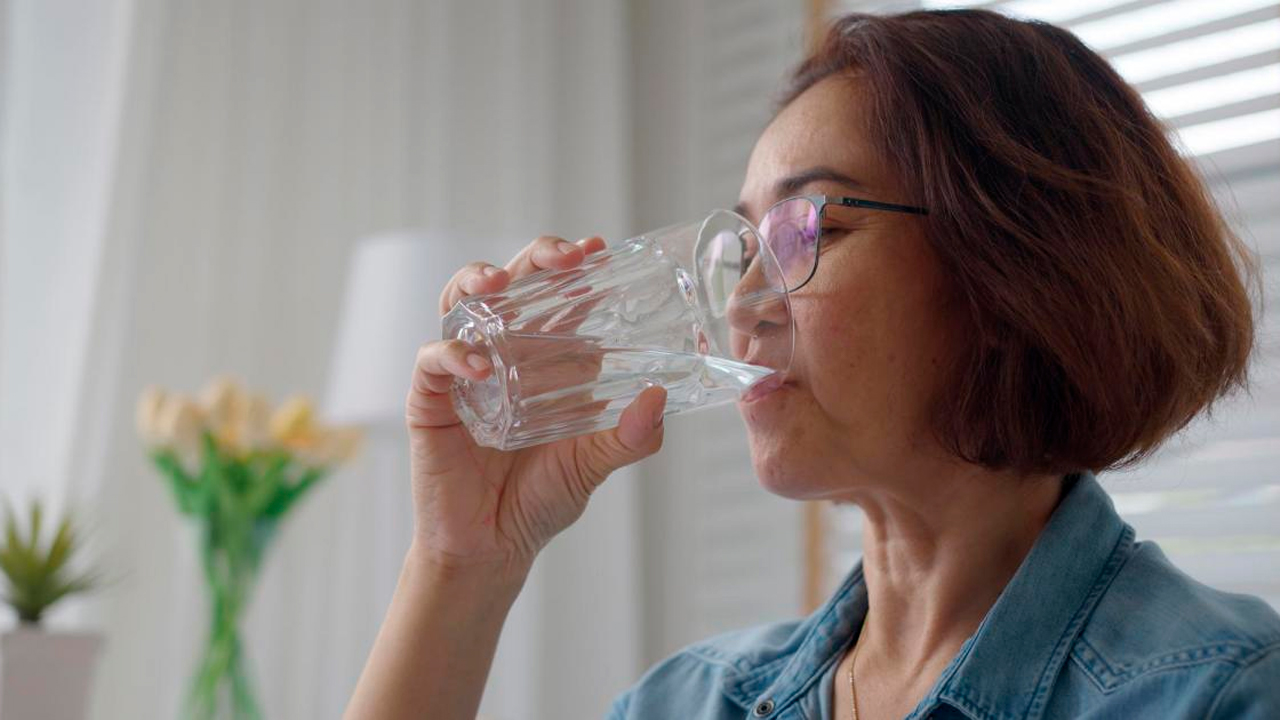The link between hydration and aging
According to the National Institutes of Health, adults who stay well-hydrated appear to be healthier, develop fewer chronic conditions, such as heart and lung disease, and live longer than those who may not get sufficient fluids.
Using health data gathered from 11,255 adults over a 30-year period, researchers analyzed links between serum sodium levels – which go up when fluid intake goes down – and various indicators of health. They found that adults with serum sodium levels at the higher end of a normal range were more likely to develop chronic conditions and show signs of advanced biological aging than those with serum sodium levels in the medium range. Adults with higher levels were also more likely to die at a younger age.
The researchers report that middle-aged people who have higher serum sodium levels in their blood are more likely to experience poor health and a higher risk of early mortality. Serum sodium levels may get elevated when a person has not consumed enough fluids. Healthy serum sodium levels range from 135–145 milliequivalents per litre (mEq/L). The most common cause of high sodium levels is insufficient water intake. In addition, researchers found that participants with low serum sodium levels (less than 142 mEq/L) had up to a 50% increased risk of being older than their chronological age.
Biomarkers like blood pressure, blood sugar, cholesterol, and other indicators reveal how well a person’s cardiovascular, respiratory, metabolic, renal, and immune systems are functioning.
Hydration
According to the Centers for Disease Control and Prevention (CDC), the optimal amount of water a person should consume daily depends on the individual.
Among young adults and middle-aged people, the average amount of water intake varies by age:
- For ages 20-39, the CDC suggests an average of 51 ounces daily.
- For ages 40-59, 43 ounces of water per day is the average.
People with kidney disease should drink less water since their kidneys are less equipped to maintain a balance of fluid in their bodies. In contrast, some individuals may require more water, such as those with a higher body mass index (BMI). Drinking too much water is also harmful, the kidneys cannot get rid of the excess, and it can cause hyponatremia, a dilution of sodium in your blood, which can be a life-threatening event.
Hydrating with other fluids
Choosing plain water or adding cucumber, lemon, or lime is also a good idea for hydration for optimal heart health. In fact, water-rich foods, in which 90% or more of their content is water, are also good options for hydration. Hydrating foods include watermelon, cucumber, and strawberries. In addition to water, coconut water, pickle juice, electrolyte-infused waters or electrolyte tablets, homemade electrolyte drinks, smoothies, fruit juices, or Pedialyte are also helpful in fulfilling the hydration requirement.
Conclusion
Hydration is important for all ages, and a population survey finds that about 50% of people do not drink recommended amounts. This percentage is even higher for older people, who tend to drink less because the thirst sensation deteriorates as we get older.
The best way to stay adequately hydrated is to keep track of how much fluid you drink each day. We all should be vigilant about the signs of dehydration like decreased sweat response, changed mental status, and decreased or absent urine output.

 Hydration is important for all ages, and a population survey finds that about 50% of people do not drink recommended amounts. A new study has revealed the link between hydration and healthy aging, read on to know more about it.
Hydration is important for all ages, and a population survey finds that about 50% of people do not drink recommended amounts. A new study has revealed the link between hydration and healthy aging, read on to know more about it.
















.jpeg)











.jpg)




